Bijdragen € 10
Appreciation
We will include your name on the appreciation section on our website :)
http://www.smartcentretanzania.com/
> 16 Co-financiers
We use own and third party cookies to improve your user experience and our services, analyzing users' browsing in our website. If you continue browsing, we will consider that you consent to its use. You can get further information in our Cookies Policy
Njombe Beyond " 2nd life of plastic satisfies local needs"
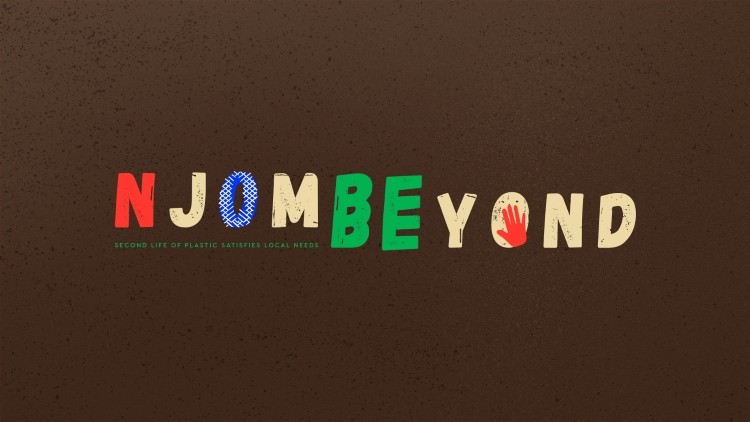

 Min.
Min.
 Opt.
Opt.
 Njombe, Tanzania
Njombe, Tanzania
We will include your name on the appreciation section on our website :)
http://www.smartcentretanzania.com/
Apart from including your name on our website, you will get the picture of a beautiful and unique sunset of Njombe.
Apart from including your name on our website, you will get a video of the workshop in operation and the people who participate in the project.
Apart from including your name on our website and the video, you will get one of the objects that will be produced in our workshop. You will be able to choose the one you like the most.
Object recycled in our workshop +
+You will get it before spring 2020. Shipping only includes Spain. Please, consider the carbon footprint of the transport if you choose this option ;)
Apart from including your name on our website, the video and the recycled object, you will be able to choose a name for one of the machines; it can be yours or the one you choose.
Name of one of the machines
+You will get it before spring 2020. Shipping only includes Spain. Please, consider the carbon footprint of the transport if you choose this option ;)
Apart from including your name on our website, the video and the recycled object, for the adventurous ones: stay in Njombe during 3 days, get a course on plastic recycling in our workshop and visit to the most special places in Njombe. Karibu!
Stay in Njombe and plastic recycling course++
+You will get it before spring 2020. Shipping only includes Spain. Please, consider the carbon footprint of the transport if you choose this option ;)
++Accommodation and meals for 2 people during 3 days.
Training entrepreneurs on plastic recycling with simple machines to satisfy local needs in Njombe (Tanzania)
 Materiaal
Materiaal
|
Minimum | Optimum |
|---|---|---|
|
Shredder
Machine to shred plastic into small flakes
|
€ 800 | |
|
Injection machine
Machine to to be used with a mould to produce small objects like teaching material, jewellery pieces or toys.
|
€ 430 | |
|
Molds: 4 pieces
Aluminium molds for the production with the injection machine, the compression machine and the extrussion machine.
|
€ 1.400 | |
|
Compression machine
Machine to produce larger and more solid objects like roof or floor tiles.
|
€ 230 | |
|
Tools
Tools for the post-manufacture of products
|
€ 550 | |
|
Extrussion machine
Machine to produce plastic filament for objects like a lamp or a handle of a knife
|
€ 320 |
 Infrastructuur
Infrastructuur
|
Minimum | Optimum |
|---|---|---|
|
Expenses of Goteo, banks and rewards
Goteo 4%, bank 0.8% of the total
|
€ 500 |
 Taak
Taak
|
Minimum | Optimum |
|---|---|---|
|
Set up of the machinery (aprox. 2 months)
- Salary for a trainer and a labourer during the ste up of the machines: 500 €
- Plastic: plastic waste bought from pickers in Njombe for the operation during the set-up: 130 €
- Electricidad for operating during the set-up: 200€
- Use of the tools during the set-up: 360 €
- Office expenses (stationery, transport, cleaning, first-aid kit, telephone and telecommunications): 740 €
|
€ 1.930 | |
| Totaal | € 3.910 | € 6.160 |
Plastic! More and more plastic and plastic waste in Njombe; on the streets, on the ground, on the fields, in the rivers, burning at pits and dump sites. And there are no alternatives to avoid it!
What if we recycled this plastic locally and on a small scale?
What if we produced useful objects for our community and at the same time recycling was economically sustainable?
What if apart from doing it ourselves we trained others on how to do it?
Let´s get down to work!
We are going to open a workshop to recycle plastic on a small scale by using the Precious Plastic machines. Following the effective approach of the SMART Centres, we are going to train local entrepreneurs so that through their businesses, a value chain is created around plastic. To start with, we need to have the machines for plastic recycling to experiment and adapt them to our context. Once they are running, we will start answering the questions above.
"In this way, plastic waste will no longer be a problem; instead, it will be valuable for the people in Njombe: by creating new jobs and by improving the current ones, manufacturing recycled products useful for the local community and by raising environmental awareness."
We conceive this project as a first step to make Njombe a circular town, to go ”beyond”: beyond the current situation, the increasing waste generation, the pollution and the linear economy.
Njombe and its 40,000 inhabitants in the south of Tanzania mean colour, warm welcomes and smiles following the rhythm of the music. And we want it to continue being the same. Wananjombe tuwe pamoja!
We are going to establish a small scale plastic recycling workshop. Thanks to Precious Plastic, we know how to produce our own machines to recycle plastic:
In our workshop, these machines will allow local entrepreneurs to experiment and learn how to build the machines and how to recycle with them. In addition, we will train and support them in their adventure of starting their business in plastic recycling in key topics like marketing and accounting.
Nowadays, informal pickers carry out plastic waste collection; we will collaborate with them to ensure a fair salary and safe working conditions.
We are collaborating with small companies and industries and the community to discover what to produce to satisfy local needs.
We want the schools to be part of the project. Through different events like presentations, tournaments and visits to the workshop, we want the younger generations to discover the impact of plastic as well as its value and potential.
Our final objective is: to reduce the plastic wasted in Njombe town and to raise awareness in the local community about the problems and opportunities around plastic.
Our specific objectives are:
So far we have…
And our next steps are…
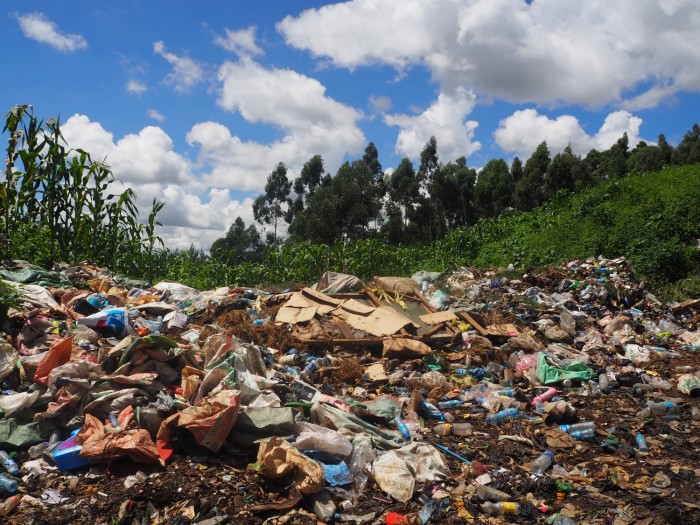
A bit more than a year ago, we were at a beach in Morocco, enjoying the sunset, the two of us alone. It was a beautiful and calm place, there was a “but” though: there was plastic all over the place. It was then, with the recent inspiration of Precious Plastic and all the knowledge obtained during our 6 years of environmental studies, when I had a dream: What if we travelled around the world collecting plastic and transforming it into useful objects for the local community? The availability of plastic waste would not be a problem…
Few months later, Leire moved to Njombe for an internship at the SHIPO SMART Centre. She felt so much in love with the place and especially with the people there, that 6 months have turned into 17, so far…
During her time there, she got to know the other two seeds of Njombe Beyond:
1. The SHIPO SMART Centre approach: to train the local private sector to give a solution to local challenges like water supply.
2. The increasing amount of plastic waste spread around Njombe town and its environment.
Regarding the second point, we have researched and got to know the current situation deeper and it has definitely strengthened our reason to be:
Njombe is a growing town, it has more than 40,000 inhabitants who generate more than 35 tonnes of waste per day. 28 tonnes piled in the dump site, where it is a common practice to burn the waste due to lack of space. The rest of the waste is burnt in the pits in backyards or it simply ends up in the environment.
More than 10 % of the waste is plastic: 3500 kg per day and more than 1000 tonnes per year that are piled, burnt or disposed of in the environment.
Until the end of 2017, part of the plastic bottles were collected by companies in Tanzania and sent to China. However, since 2018 China has stopped importing plastic waste. Hard plastic is partly recycled in Dar es Salaam (the economic capital of Tanzania) but there is no market for the plastic bottles.
In Njombe, there are informal pickers who collect and shred the plastic to transport it to Dar es Salaam. This city is 700 km far from Njombe, which makes this option non-sustainable.
The demographic growth in Njombe and the increase of 400% [1] of the imports of plastic and rubber since 2000, indicate that the plastic waste problems will not decrease.
Unfortunately, Njombe is not an exception on this: the situation in the rest of Tanzania and Sub-Saharan Africa follows the same trend: the population in Tanzania is expected to more than double by 2050 and consumption rates are increasing due to development. Consequently, waste generation rates are expected to be more than triple in the country by 2050 while only 48% of the waste is collected and there is lack of waste separation and treatment options [2]. This indicates us that actions need to be taken now, before this global problem gets worse.
We are happy to see that in the past years more and more campaigns and studies tackle the problems related to the massive waste generation, a topic which has been greatly ignored until now.
We do not think that plastic recycling is the only solution to this problem; we conceive this project as a mean to give visibility to the problems derived from waste, reduce the consumption of plastic in Njombe, give a sustainable solution to the plastic waste generated in Njombe and raise environmental awareness among the local community.
We dream of a clean and healthy Njombe. With entrepreneurs recycling plastic on a small scale, with schools involved in the project and with people who know about the impact of plastic waste, who take measures and understand the importance of reducing and treating this precious material.
[1] Source: The observatory of economic activity
[2] Fuente: World Bank - What a waste
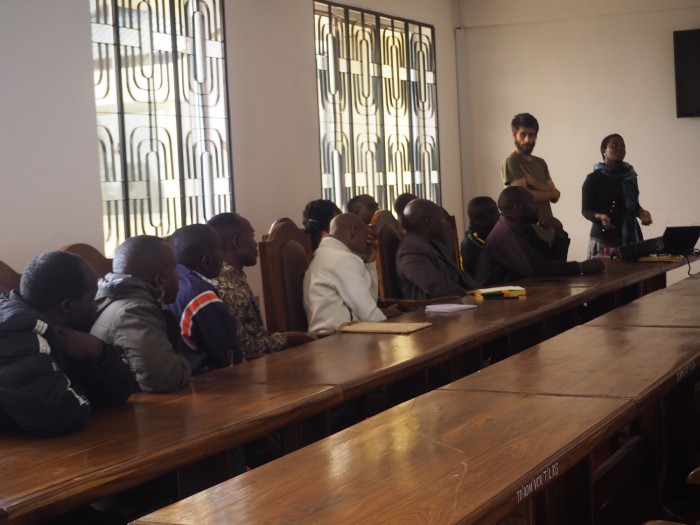
SMART Centre Tanzania is a unit within the local NGO SHIPO based in Njombe. In this department, we are three environmental engineers and a community development expert. We deal with SMARTechs (Simple, Market based, Affordable and Repairable Technologies) that solve challenges of local communities on water supply, sanitation and, through Njombe Beyond, waste management. The SMART Centre approach consists in training local entrepreneurs so that these technologies are deployed and reach the community through the private sector. In this way, the market for SMARTechs will exist even when the NGO’s work is over. The results obtained with these strategy are admirable:
"More than 27,500 people, including schools and hospitals, are benefitting from the wells and pumps installed by the trained artisans. More than 60 artisans have created 15 groups (companies) active nowadays."
We collaborate with CEFA, an Italian NGO present in Tanzania since the 70s. In the Southern Highlands they are working in different sectors (agriculture, energy, environment) for an integrated rural development. In particular we relate with the Environmental Team based in Matembwe, a nearby village, which is working to find feasible solutions to the problem of Solid Waste Management: they are conducting awareness-raising campaigns on environmental pollution and have started a craft workshop that empowers disadvantaged women called 'THAMANI - Value, not waste'.
With them, a product designer and an expert in environmental science, we would like to develop a village-city system, especially for plastic waste management.
Our assets:
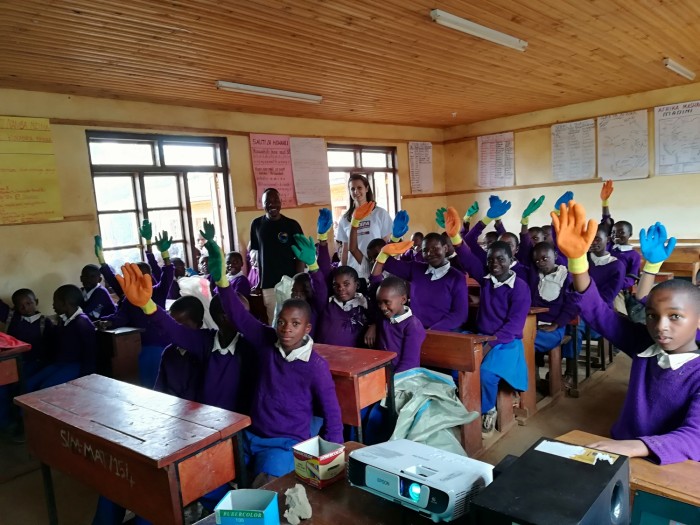
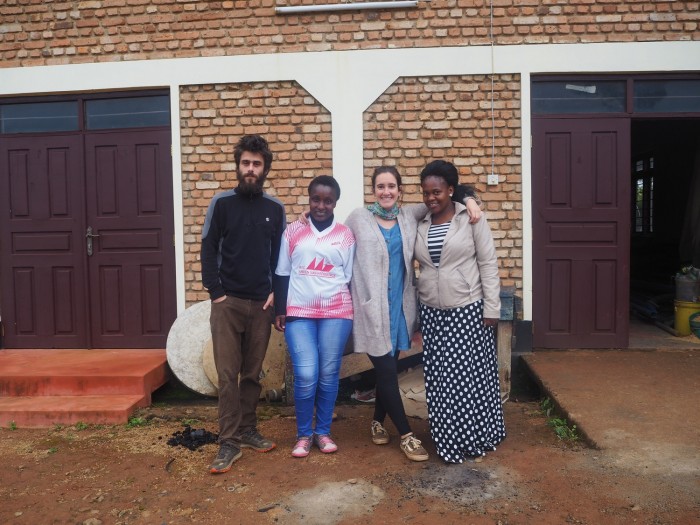

We believe in a sustainable circular economy that allows us to live in harmony with the world, others and ourselves.
We believe in the power and skills of local communities to transform our own reality.
We believe in the SMARTechs (Simple, Market based, Affordable and Repairable Technologies) and the SMART approach to generate sustainable businesses that satisfy local needs.
Capacity building in Njombe to recycle part of the plastic waste it generates through training for entrepreneurs on production and operation of small scale recycling machinery and business development.
Create a supply chain for machine parts and create a market for recycled plastic products.
Produce recycled objects that satisfy local needs.
Appreciation
We will include your name on the appreciation section on our website :)
http://www.smartcentretanzania.com/
> 16 Co-financiers
Sunset
Apart from including your name on our website, you will get the picture of a beautiful and unique sunset of Njombe.
> 19 Co-financiers
Video
Apart from including your name on our website, you will get a video of the workshop in operation and the people who participate in the project.
> 19 Co-financiers
Object recycled in our workshop
Apart from including your name on our website and the video, you will get one of the objects that will be produced in our workshop. You will be able to choose the one you like the most.
Object recycled in our workshop +
+You will get it before spring 2020. Shipping only includes Spain. Please, consider the carbon footprint of the transport if you choose this option ;)
> 11 Co-financiers
Give a name to the machines
Apart from including your name on our website, the video and the recycled object, you will be able to choose a name for one of the machines; it can be yours or the one you choose.
Name of one of the machines
+You will get it before spring 2020. Shipping only includes Spain. Please, consider the carbon footprint of the transport if you choose this option ;)
> 03 Co-financiers
Get to know Njombe and our workshop
Apart from including your name on our website, the video and the recycled object, for the adventurous ones: stay in Njombe during 3 days, get a course on plastic recycling in our workshop and visit to the most special places in Njombe. Karibu!
Stay in Njombe and plastic recycling course++
+You will get it before spring 2020. Shipping only includes Spain. Please, consider the carbon footprint of the transport if you choose this option ;)
++Accommodation and meals for 2 people during 3 days.
> 01 Co-financiers
Check out the description on our GitHub issues: https://github.com/Mettodo/Njombe-Beyond
Check out the description on our GitHub issues: https://github.com/Mettodo/Njombe-Beyond
Check out the description on our GitHub issues: https://github.com/Mettodo/Njombe-Beyond
Check out the description on our GitHub issues: https://github.com/Mettodo/Njombe-Beyond
Check out the description on our GitHub issues: https://github.com/Mettodo/Njombe-Beyond